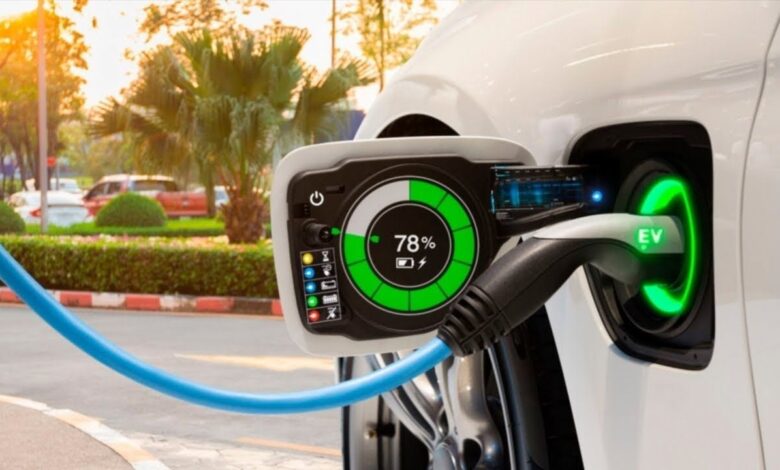Electric car imports surge in Azerbaijan, reflecting global shift towards sustainable mobility

The import of electric cars to Azerbaijan increased in
January-April of 2024. During this period, 1,012 electric vehicles
(electric cars) were imported into the country.
Last year, Azerbaijan imported 3,102 electric vehicles worth
$125,268,000, which is 7.1 times and 6.4 times higher compared to
2022, and 36.2 times and 19.4 times higher compared to 2021,
respectively.
It should be recalled that in the same period of 2023, the
number of imported electric cars was 568, and the value was 23.8
million dollars.
Azerbaijan offers more flexible credit terms for new electric
cars, and with the increasing number of electric charging points in
the country, the sale of electric cars continues to grow. As a
result, owning an electric car is becoming increasingly popular and
aligns with current trends.
Speaking to Azernews on the topic,
economist Natig Jafarly discussed the potential
impact of the increasing global adoption of electric vehicles on
the demand for traditional internal combustion engine cars and
consequently on the consumption of crude oil, diesel, and gasoline
derived from oil.
Jafarly acknowledged that the shift towards electric vehicles is
a natural progression but cautioned against expecting a drastic
reduction in oil demand.
He pointed out that oil serves various purposes beyond fuel
production, and reports from organizations like the International
Energy Agency and OPEC project a gradual increase in global oil
demand. Presently, daily oil consumption worldwide hovers around
100.1 million barrels, expected to rise to 110 million barrels by
the 2030s, indicating a 10 million barrel increase.
Furthermore, Jafarly highlighted challenges associated with
electric vehicles, such as the significant natural resources
required for their production, suggesting that transitioning to
electric cars might not be as straightforward as anticipated.
Regarding future fuel prices in Azerbaijan, Jafarly emphasized
the pivotal role of government policy in determining prices. While
global market dynamics may indirectly influence prices, the
economist underscored that the Azerbaijani government regulates oil
product prices.
He mentioned the possibility of price fluctuations, both upward
and downward, contingent upon the government’s stance on the
matter. Despite prevailing discussions focusing on price hikes,
Jafarly suggested that oil prices could experience a sharp
decline in the foreseeable future, thereby influencing oil product
prices in Azerbaijan.
Talking about the recent growing interest in electric cars in
the country, transportation expert Aslan Asadov
said that the main reason is the increasing demand for alternative
energy vehicles in the world.
“Electric cars seem attractive and appealing to manufacturers
worldwide who are seeking ways to move away from traditional fuel
sources. Electric cars belong to the class of vehicles that are
most practical and usable today. Primarily, they are considered
economically beneficial modes of transportation. They can achieve
more mileage with less fuel consumption and operate more
efficiently.
The second reason is the consideration of comfort elements in
cars. While it is true that comfort features sometimes come with a
higher cost in cars, various details are implemented for passenger
comfort when designing electric cars. This indicates the growing
interest in electric cars.”
Speaking about the simplified tax assessment to attract electric
cars to Azerbaijan, the expert noted that this ensures the
population’s access to this type of vehicle.
“Additionally, there are no excise taxes or customs duties for
electric cars. There are only minimal declaration costs and service
charges. In contrast, cars with internal combustion engines used to
incur tens of thousands of manats in customs duties, excise taxes,
or VAT. However, the government has waived all of these.”
—
Follow us on Twitter
@AzerNewsAz



